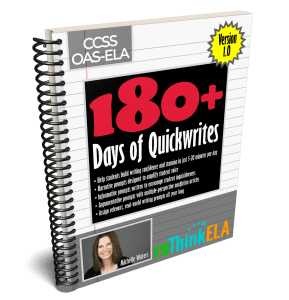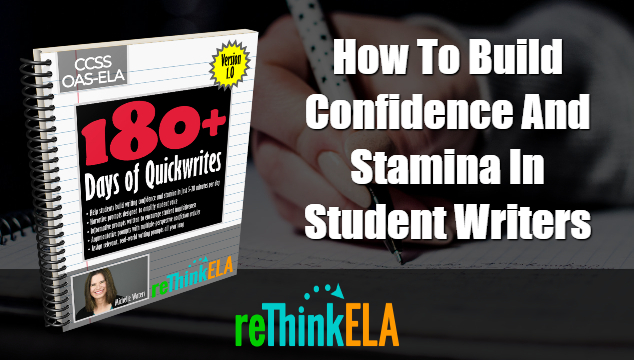In public schools across our country, many students arrive in middle and high school classes lacking confidence in their writing skills and in their ability to craft texts more intricately constructed than a five-paragraph essay.
“Three-quarters of both 12th and 8th graders lack proficiency in writing, according to the most recent National Assessment of Educational Progress. And 40 percent of those who took the ACT writing exam in the high school class of 2016 lacked the reading and writing skills necessary to complete successfully a college-level English composition class, according to the company’s data,” according to “Why Kids Can’t Write,” an article published in the Aug. 2, 2017 issue of The New York Times.
After seven years of teaching middle and high school English, I have found through observations and student interviews that students struggle with writing. Mostly, they lack confidence stemming from years of grammar worksheets, five-paragraph essays (or no essays at all), and a rigid devotion to correcting grammatical mistakes on the part of their teachers, has lead to an aversion to writing itself. Students know they need practice, but they view writing the same as running stairs at football practice: An activity devised by teachers to torture them, but without the carrot of scoring a touchdown dangling at the end of the stick. And for some students, even that carrot isn’t enough to push them past their fear of failure and years of not being good enough.
[bctt tweet=”Students know they need practice, but they view writing the same as running stairs at football practice: An activity devised by teachers to torture them, but without the carrot of scoring a touchdown dangling at the end of the stick.” username=”watersenglish”]
While there are no “end runs” for solving this particular problem, an English teacher can kickoff the year by providing students a safe space in which to practice their writing. Through training provided by the Oklahoma Writing Project, and studies in my English education master’s degree program at the University of Oklahoma, I have developed a quickwriting process in my classes that provides students with a strong writing foundation built on practice, student choice, and self-evaluation.
In an ideal world, students would already know where their expertise lies, what they want to write about, and who their audiences are. That’s not where most students live, so in order to help students practice their writing, I have scoured the Internet for ideas and spent the past three years revising and devising prompts to help students discover who they are and what they have to say as writers.
Every day, my students write in response to a prompt (and sometimes to an article or other text, as well). I provide them with up to five minutes to write quietly, and they can write in any format they want. After they have written for five minutes, they share their texts with a group of their peers, so they immediately have an audience.
Not sure this method is effective? Check out what one of my students had to say when I asked her to reflect on the importance of quickwriting. Then access our new resource, 180+ Days of Quickwrites for Secondary English Teachers, which includes a teacher’s guide that details the process I use in my class and insights into how you can make these work on a daily basis in your classroom.
 Are you ready to help your students build writing confidence and stamina? You can access all 180+ prompts, divided into modes of writing (argumentative, creative, informative, narrative, and reflective), some of which are accompanied by additional materials such as videos and articles covering topics from multiple perspectives in our new digital product. You can learn more about 180+ Days of Quickwrites for Secondary English Teachers here.
Are you ready to help your students build writing confidence and stamina? You can access all 180+ prompts, divided into modes of writing (argumentative, creative, informative, narrative, and reflective), some of which are accompanied by additional materials such as videos and articles covering topics from multiple perspectives in our new digital product. You can learn more about 180+ Days of Quickwrites for Secondary English Teachers here.

